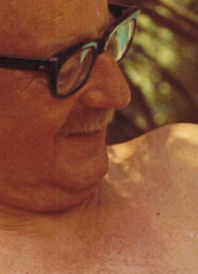
Leo Tolstoy once wrote that “unhappy families are unhappy in their own way”, which may or may not be true. What we as cinephiles and human beings can see is that there’s a familiarity in how that unhappiness manifests. Subjects become taboo, memories fade, but that’s until a few family members start bringing back those memories, no matter how painful or taboo they may be. This is true of the wife and descendants of Salvador Allende, who lovingly call him Chicho. In Beyond my Grandfather Allende, his granddaughter Marcia Tambutti Allende talks to her mother and the three generations of her family. They discuss the places they can never return to, even after Chile voting out the Pinochet government in 1989. The family still has questions about what happened but disagree on answering such questions.
Beyond my Grandfather Allende‘s rewards really depend on the viewer. Yes, it’s a personal look on such a public figure. However, it has enough insight on the latter aspect of Allende’s life. Most people assume that his rise and fall feels sudden. But thankfully, the documentary reveals that the rise at least took two decades. Or that a man with Marxist leanings had a beach house. To others, the Beyond my Grandfather Allende‘s main message probably feels like ‘historical figures are just like us’. They can look imperfect and silly in the archive footage, and this documentary has copious amount of that kind of footage. Fathers aren’t as intimidating. Also, by exposing the family, the documentary shows the divide between the people who want to dig up memories and those who don’t.
As Tambutti Allende and her family reluctantly dig up past pains, they connect the loss of Salvador with other losses that history may end up forgetting. The second big tragedy in the Allende family is the loss of Tambutti Allende’s aunt Beatriz or Tati. After the coup in September 11, 1973, the family dispersed to Cuba and Mexico. Beatriz chooses Cuba and because active in a communist government that disregarded her depression. Most people don’t believe in the ‘both sides’ argument, but this is one of those unique situations where that argument applies. SOmething elset helps make that argument valid here. Yes, Beyond my Grandfather Allende is political, but it brings up these political statements as secondary to its personal effects. The documentary prioritizes a family reuniting, taking care of that before it tackles bigger things.
Watch Beyond my Grandfather Allende on Tenk before it leaves the platform on October 30th.
- Genre: Documentary, History
- Directed by: Marcia Tambutti Allende

